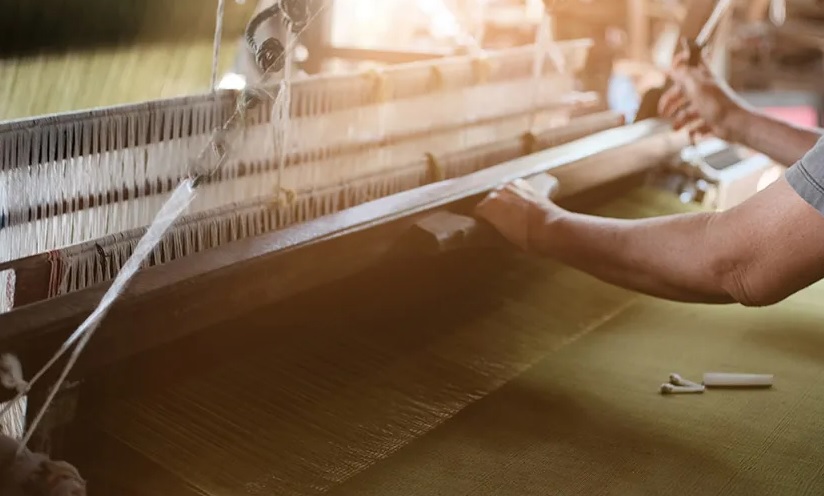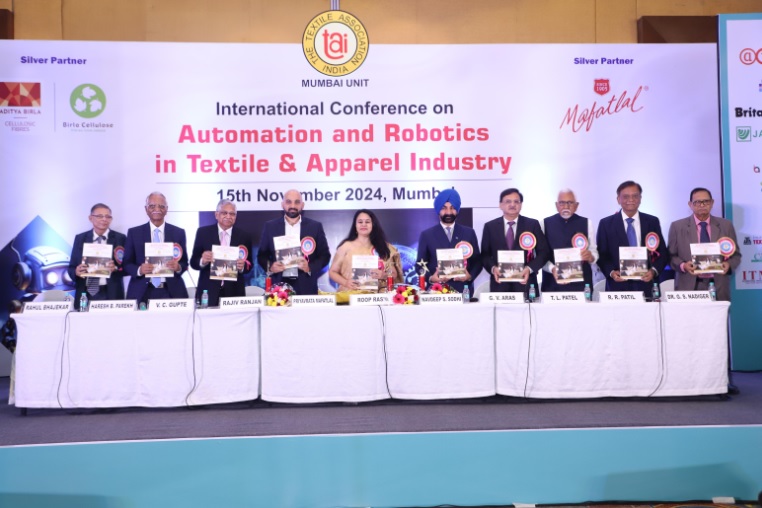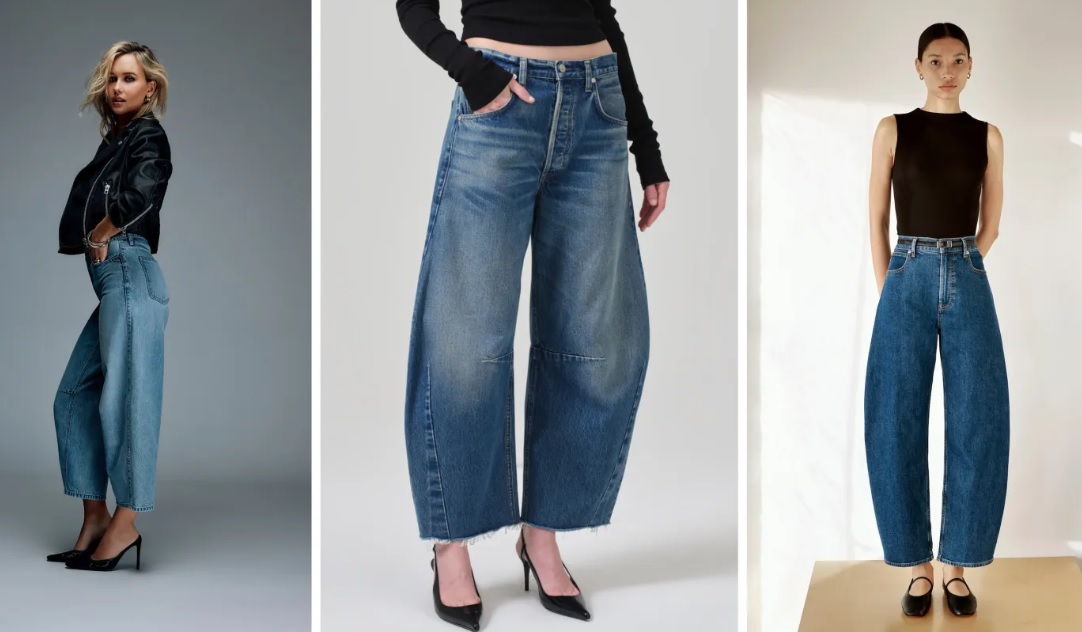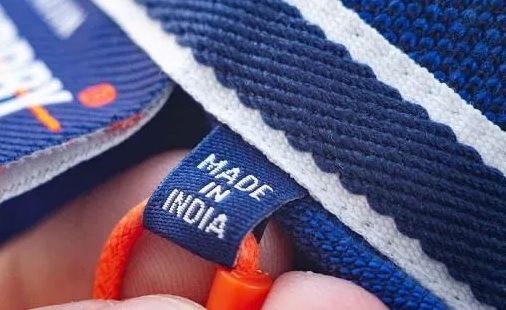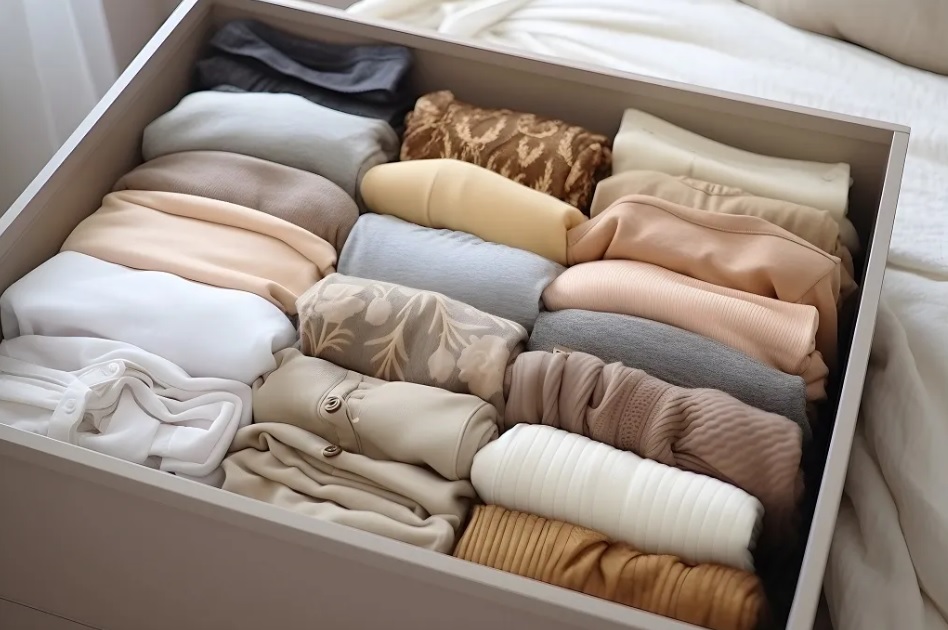
Textiles (141)
The International Conference of the European Industrial Hemp Association (EIHA) will be held from June 12-13, 2018 in Cologne, Germany.
Around 350 participants from 40 countries are expected to participate in the event that will discuss the latest developments from all areas of the hemp industry – from seeds to the end product. Around 20 exhibitors will present their latest technologies and products in the event.
A major highlight of the conference will be an innovation award for the Hemp Product of the Year, presented for the first time ever. This award will honor three products – each from the areas of food, cosmetics and biocomposites. Participants will select the winners per category based on a short introduction of the products. The award winners will then be announced during the dinner ceremony.
The event will be organised by the German nova-Institut in close cooperation with the European Industrial Hemp Association. The day before the conference, EIHA will host expert workshops for members, meet representatives from Canada, USA and China.
International Textile Machinery will be held in Turkey, June 2 to 6, 2020, starting on June 2, as additional day, instead of June 3.
This is a textile machinery show. The event displays textile equipments and products, textile related software and solutions and other products and services. It gathers together some of the most important manufacturers of textile machinery from Turkey and around the world.
ITM is a showcase for weaving, printing, digital printing, flat and circular knitting, weft and warp knitting, spinning, winding, twisting, texturing, hosiery, quilting, dyeing and finishing machinery, textile chemicals, lab equipments, compressors and generators. The show held in April 2018 achieved great global success. There were foreign visitors from 94 countries, a high number of domestic visitors, an increase in the number of machines exhibited and a rise in the dimensions of exhibitor booths. Both national and international companies made sales of millions of euros. Hundreds of various business connections were established. Over 1150 textile technology manufacturers and company representatives from 64 countries participated at the exhibition and exhibited their products and technologies.
Most textile machinery manufacturers in Turkey range from small to medium sized companies. The line of textile machinery products manufactured by Turkish companies varies substantially from highly automated equipment to basic models. They have competence in most machinery categories such as atmospheric jet dyeing or blow dyeing.
Chinese textiles and clothing exports, according to WTO, have declined sharply from US$236 billion in 2014 to US$206 billion in 2016. Its share by value in the global textile and clothing market also declined from 38.6% in 2015 to 35.8% in 2016. As per Chinese customs data, exports of clothes and accessories fell by 0.4% in 2017, while textiles exports saw annual growth of 4.5% during the year.
Hit by the industry restructuring, big clothing brands in the country are struggling to retain margins and secure finance. Revenues are depleting at Fuguiniao, a Hong Kong-listed menswear and shoe manufacturer based in Fujian, since 2015. The company reported a net loss of 10 million Yuan (US$1.57 million) in the first half of 2017, a bond default this year, and it has debts piled up at 3 billion Yuan.
Cotton prices have increased from around Rs 350 to Rs 400 per quintal and are likely to remain high due to an increase in international market prices. According to P Alli Rani, CMD, Cotton Corporation of India (CCI), cotton prices usually increase during this time in the season due to slowdown in arrival. And with increasing demand from spinning mills and ginners, these prices are likely to remain firm for sometime.
So far, 320 lakh bales have arrived in the market and the season is likely to continue for another 30 days. Arrivals have slackened to 0.5 lakh bales a day, thus increasing the prices. According to cotton ginners, market sentiment is positive due to the speculation that demand from China is surging due to depleting buffer stock. China, earlier, had a buffer stock for one-and-a-half years and this has now reduced to a year’s stock. Exports from India, therefore, are likely to touch 75 lakh bales instead of the originally estimated 65 lakh bales.
The textile industry in India may be made to buy cotton and jute from farmers at least at the minimum support prices. This move is part of efforts to ensure a 50 per cent profit to farmers over their cost of production. The proposal — fraught as it is with serious implementation challenges — could spell trouble for the labor-intensive textile and garment industry.
MSP for cotton will increase by at least 28 per cent in 2018-19 from the current level. Cotton accounts for roughly 60 per cent of yarn costs and yarn makes up for 50 per cent of fabric costs. Fabric, in turn, makes up for 50 per cent of garment costs. So higher cotton prices will push up costs in the entire value chain and jeopardise its competitiveness.
The idea is being mooted at a time when garment production has dropped for 11 months in a row and exports have contracted for a seventh straight month through April, with most units reeling under elevated costs.
Garment production dropped 11 per cent in 2017-18 and exports contracted almost four per cent even though the country’s overall merchandise exports rose 9.8 per cent. Also, the proposal will potentially render the Cotton Corporation of India irrelevant.
The textile sector in Pakistan will get an enhanced supply of natural gas.
Availability will be increased to 42 per cent from 28 per cent i.e. from two days a week to three days a week.
Pending refunds of exporters will be paid in the next fiscal year in various installments starting from July 2018.
The industry wants refunds to be paid where refund orders have been issued. Exporters say the rebate on exports announced in the textile package has not been paid and consequently the liquidity problem of the textile sector has worsened.
Refunds have not been processed for one-and-a-half-years. Pending refunds of the industry up to December 2016 are yet to be paid. As a result of the delay in refunds, more than 30 per cent of the cash flow is blocked now.
Exports grew by 18 per cent, but the seven per cent rebate on exports was not paid, say exporters.
Exporters want a supply of natural gas three days a week during Ramazan because LNG is becoming an expensive input for them and making their exports uncompetitive in the global market.
The textile industry in Pakistan contributes 57 per cent to the country’s exports. The country is working on upgrading its supply chain, improving productivity, and maximising value addition.
Saurer’s vision is to become a smart industrial solutions and services provider. Based in Switzerland, Saurer is a global leader in rotor spinning and winding machines. It developed the first hand-knitting machine in 1869, the first automatic embroidery machine in 1912 and invented the modern truck in 1905. Saurer is a technology group focusing on machinery and components for yarn processing. Saurer Technologies specializes in twisting and embroidery as well as engineered and polymer solutions.
The group has developed a technology centre in Switzerland. This will work closely with existing research and development departments of the Saurer Group. The center will combine Saurer’s leading expertise in sensor technology and automation with the latest innovations of Industry 4.0.
Saurer’s central development philosophy is summarised in the formula E3+I, which stands for Energy, Economics and Ergonomics plus Intelligence. The formula symbolises Saurer’s efforts to manufacture machines with maximum production efficiency, minimum energy consumption and pioneering ergonomics and at the same time it intelligently integrates all of the data gathered during production with a view to putting in effect, for example, self-optimising systems, intelligent quality control or preventive maintenance.
The group has evolved from being a machinery and component supplier to a leading provider of intelligent solutions and services for processing fibers and yarns.
Products from Mozambique will have access to the European Union market without the imposition of quotas or payment of customs duties. The Mozambican government and the European Union (EU) delegation in the country launched on Friday the implementation plan of the Economic Partnership Agreements (EPAs) between six countries of the Southern African Development Community (SADC) and the EU.
Mozambique exports to the European Union mainly aluminium, agricultural products such as sugar, tobacco, nuts and vegetables, as well as fish products, notably shrimp and imports manufactured goods, machinery, means of transport and chemicals. The APE guarantees access to the European market without customs duties or quotas, for all goods coming from Mozambique, except for weapons and armaments.
Under the new agreement, a textile product can enter EU tax-free if at least one phase of its production, such as weaving or knitting, has occurred in one of the countries.
Over a period of 10 years, Mozambique will gradually remove customs duties on about 74 per cent of its imports from the European Union.
New York Denim Days will take place from September 22 to 23. Spearheaded by true denim insiders, the festival connects denim professionals, designers and brands with denim consumers.
Denim lovers from across the spectrum -- fashionistas searching for the perfect pair of jeans, fade junkies looking to compare notes on raw denim, purists on the hunt for handmade indigo items, and designers shopping for Americana inspiration - will find the largest selection of indigo available at one event. Food, live music and art will round out the festival experience.
Plans include events with retail partners throughout the city. The show will have a mix of denim heads, the best brands and retailers and the most forward fashion. It will feature the who’s who of denim trade, from top designers to creatives and executives on the cusp of what's next in the denim industry.
New York Denim Days is organized by Kingpins, the global denim sourcing trade show. Last year, Kingpins brought Denim Days to New York believing the concept would resonate with the New York denim scene. This year the event will be put more spotlight on the jeans industry. Following the event, Denim Days will return to its original home in Amsterdam from October 22 to 28.
NILIT, the worldwide leader in Nylon 6.6 for active wear, intimate apparel, hosiery and other apparel will showcase at the upcoming Performance Days trade show to be held from in Munich on April 18-19. The show provides a unique forum where fashion professionals and textile suppliers can discover and share latest product, trend and market innovation ideas for the apparel market.
Nilit’s Vice President of Global Marketing and R&D Pierluigi Berardi will also present a workshop on April 19. Sensil will showcase at the Performance Days Fabric forum selections from premium European fabric producers, and these fabrics will be designed with Sensil Breeze, to provide athletes with a refreshing cooling effect when body heat and temperatures rise. Cooling fabric technology is just one topic that Pierluigi Berardi will discuss in the Performance Fabrics for People and Planet workshop.
Sensil is the premium Nylon 6.6 from Nilit for apparel that is used in intimate apparel, legwear, activewear, athletic wear, outdoor apparel, denim, and other products. Nilit is a producer and marketer of high quality Nylon 6.6 fibres for apparel and other products. The company was founded over 40 years ago in Israel and has grown to be one of the largest Nylon 6.6 producer, with manufacturing and marketing operations in key regions including Europe, North America, Latin America, China, Asia Pacific, and Turkey.
- 1
- 2
- 3
- 4
- 5
- 6
- 7
- 8
- 9
- 10
Industry 5.0: Weaving a New Future for Textiles
The global textile industry, is on the cusp of a transformation driven by Industry 5.0. This new era of industrialization... Read more
Deciphering India's state-wise textile & apparel investment policies
India's textile industry is one of the main contributors to nation's economy. Recognizing its potential, various states are vying to... Read more
Price gap widens between domestic and international markets for PSF and VSF in N…
The Indian textile industry continues to grapple with differences between domestic and international prices for Polyester Staple Fibre (PSF) and... Read more
TAI hosts Global Conference on Automation & Robotics in Textiles
The Textile Association (India), Mumbai Unit, hosted an International Conference on Automation and Robotics in the Textile & Apparel Industry... Read more
Bangladesh's apparel industry at crossroads, is it short-term disruption or long…
Recent political instability and labor unrest in Bangladesh have cast a shadow over its apparel industry, the second-largest in the... Read more
WGSN Unveils 2025 Fashion Trends: A fusion of nostalgia and futurism
WGSN, a leading authority in trend forecasting, alongside Coloro, has unveiled its highly anticipated fashion predictions for 2025. These insights,... Read more
Barrel Jeans: The unexpected denim trend making waves
Move over skinny jeans, there's a new silhouette in town. Barrel jeans, with their distinctive wide-leg and cinched ankle, are... Read more
Industry 5.0, weaving a new future for Indian textiles
The Indian textile industry is ready for a change with the advent of Industry 5.0. A new report, ‘Decoding the... Read more
China's textile and apparel exports in Q3 2024 show mixed results
China's textile and apparel exports in the first three quarters of 2024, was mixed, with growth slowing down in the... Read more
Tariffs and Implications: Is a trade war looming with the US targeting key trade…
The textile and apparel industry in the US is deeply embedded in the global supply chain, heavily reliant on imports... Read more


